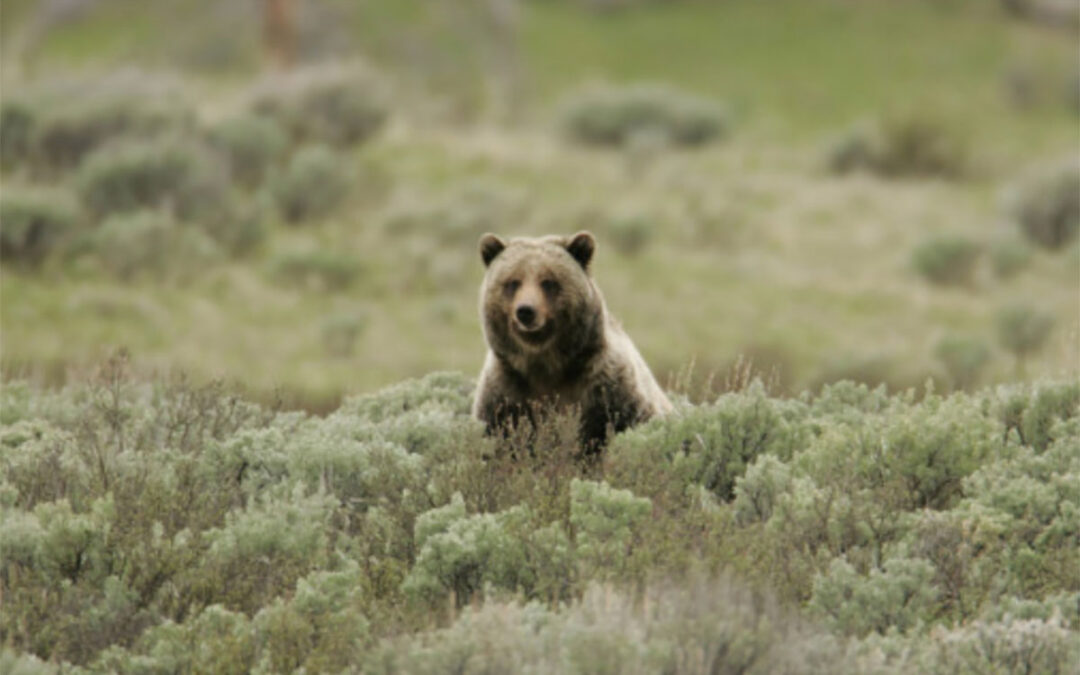Photo: Park Service
For decades the Forest Service has gotten away with calling hundreds, if not thousands, of roads on national forests “closed” when they’re not. As is well known and documented, illegal use of the roads continues when people drive around the fences, gates, and berms, rip out the gates and barriers, or simply cut a new access to get past the barriers.
When added to the many illegal user-created, motorized trails and roads, the result is absolutely false analysis by the Forest Service of the impacts of roads on wildlife — including grizzly bears, which are listed as “threatened” under the Endangered Species Act and are mandated by law to be protected and restored by all federal agencies.
To address the issue, the Alliance for the Wild Rockies challenged the Forest Service in federal court over the resulting impacts to grizzly bears. The law requires accurate determinations of motorized use and road density restrictions to protect grizzly bears as well as other road-sensitive wildlife like elk and wolverines.
The Alliance is concerned about these violations since scientific consensus is that roads pose the greatest threat to grizzly bear survival. Not only do roads displace bears from their preferred habitat, but most grizzlies are killed within 1/3 mile of a road. Put simply, more humans encountering grizzlies near roads means more people will illegally shoot bears.
The Forest Service knows these road closures aren’t working, since its own law enforcement division has documented hundreds of violations, undeniably proving that illegal road use is a chronic and pervasive problem. But the Forest Service has largely ignored these recurring violations, which has resulted in the agency significantly underestimating both the amount of actual road use and the subsequent impacts on grizzlies.
Moreover, roads have widespread harmful impacts. Grizzlies that manage to escape being killed near roads teach their young to avoid roads. This results in the secondary harm of forcing bears to survive in rocky, high-elevation areas where there are no roads – but that are largely unsuitable as wildlife habitat. The bears’ preferred habitat is near streams and river bottoms – but’s that’s where the roads are.
Likewise, elk avoid roads because they know that’s where most hunters are, resulting in elk taking refuge on private lands because public lands have too many roads. It’s also well-documented that roads result in more sediment going into streams and destroying spawning areas for native fish such as bull trout and westslope and Yellowstone cutthroat trout. Like grizzlies, bull trout are on the Endangered Species List and must by law be protected until their populations can recover and achieve stability.
The Court agreed with the Alliance and ordered the Helena-Lewis and Clark National Forest to reconsult with the U.S. Fish and Wildlife Service to accurately determine the effectiveness of road closures. The evidence was overwhelming that the Forest Service cannot simply assume that a road closure is effective simply because it has been written down on paper.
Forest Service decisions authorizing more roads for logging or other projects fail to comply with big game and grizzly bear security requirements because they’re built on a totally false house of cards. Thanks to the Court’s Order, the agency must now determine the actual impacts of illegal motorized use on grizzly bears, elk, and other wildlife since road closures on paper prove to not be effective in real life.
The Alliance’s legal victory means the agency’s deception regarding road closures must end. While the Court’s Order only applies to one national forest, it sets a precedent to halt the impacts to wildlife, fisheries, and streams from illegal road use on all our National Forests.
Mike Garrity is the Executive Director of the Alliance for the Wild Rockies
